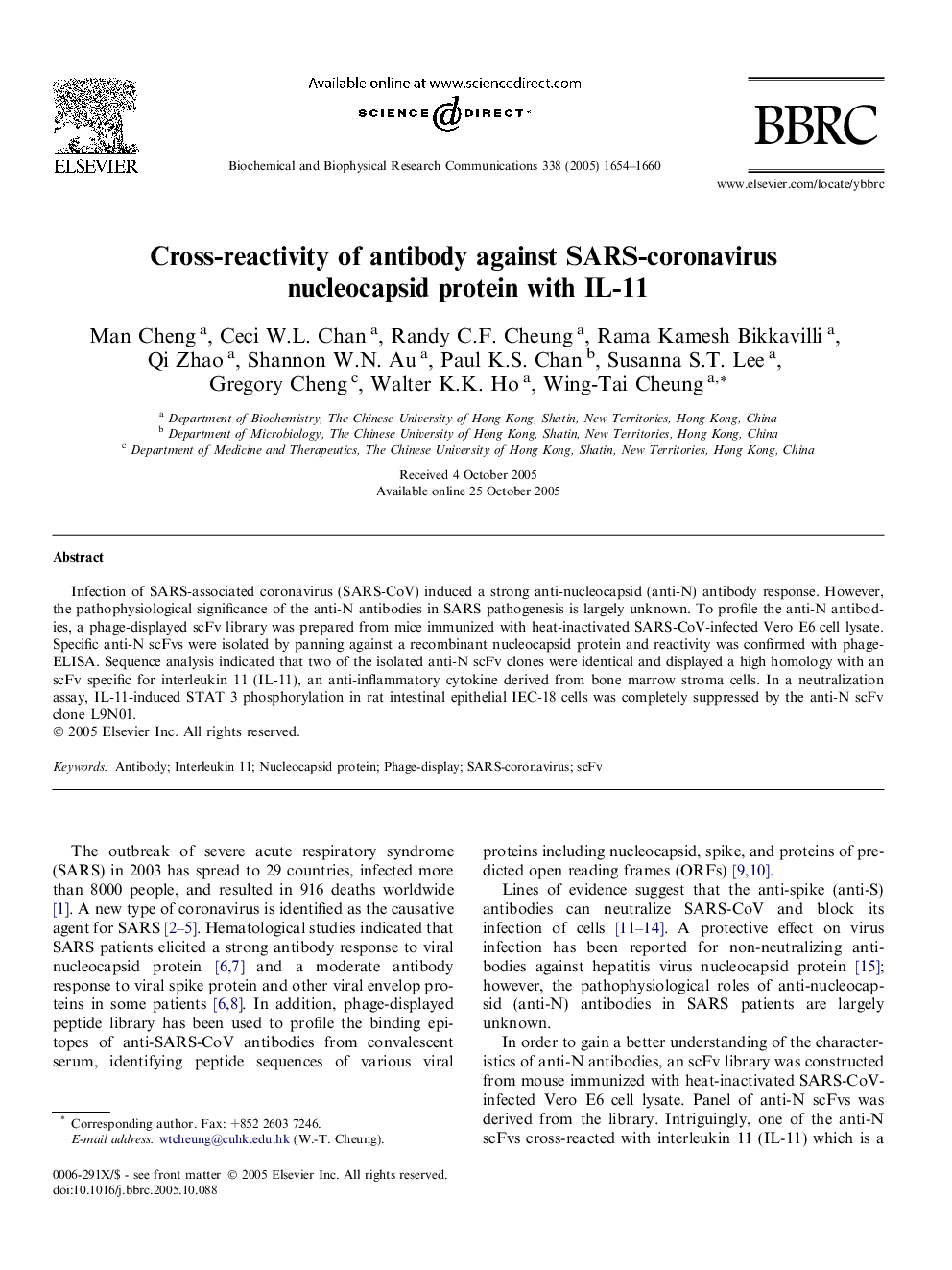| Article ID | Journal | Published Year | Pages | File Type |
|---|---|---|---|---|
| 10768912 | Biochemical and Biophysical Research Communications | 2005 | 7 Pages |
Abstract
Infection of SARS-associated coronavirus (SARS-CoV) induced a strong anti-nucleocapsid (anti-N) antibody response. However, the pathophysiological significance of the anti-N antibodies in SARS pathogenesis is largely unknown. To profile the anti-N antibodies, a phage-displayed scFv library was prepared from mice immunized with heat-inactivated SARS-CoV-infected Vero E6 cell lysate. Specific anti-N scFvs were isolated by panning against a recombinant nucleocapsid protein and reactivity was confirmed with phage-ELISA. Sequence analysis indicated that two of the isolated anti-N scFv clones were identical and displayed a high homology with an scFv specific for interleukin 11 (IL-11), an anti-inflammatory cytokine derived from bone marrow stroma cells. In a neutralization assay, IL-11-induced STAT 3 phosphorylation in rat intestinal epithelial IEC-18 cells was completely suppressed by the anti-N scFv clone L9N01.
Related Topics
Life Sciences
Biochemistry, Genetics and Molecular Biology
Biochemistry
Authors
Man Cheng, Ceci W.L. Chan, Randy C.F. Cheung, Rama Kamesh Bikkavilli, Qi Zhao, Shannon W.N. Au, Paul K.S. Chan, Susanna S.T. Lee, Gregory Cheng, Walter K.K. Ho, Wing-Tai Cheung,
